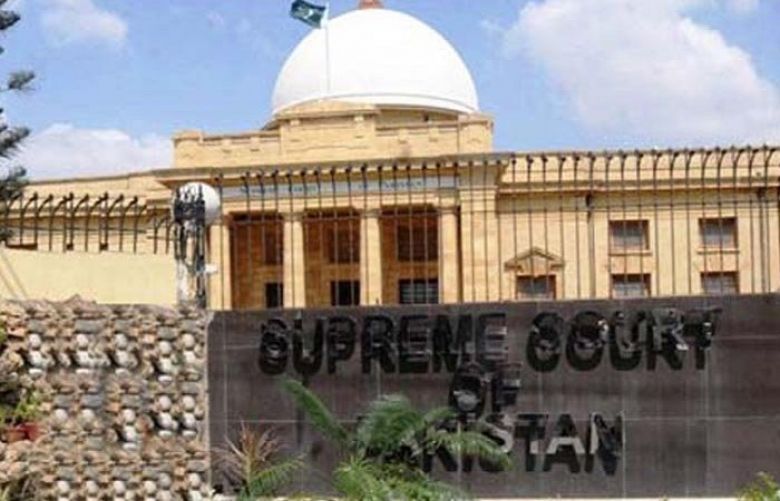The Supreme Court on Tuesday forbade provincial authorities from destroying houses during an ongoing city-wide anti-encroachment drive.
Chief Justice of Pakistan Mian Saqib Nisar was hearing a review petition filed by the Sindh government against the apex court's earlier order on the ongoing anti-encroachment drive in the city at the Karachi Registry.
Sindh Advocate General Sindh Salman Taalibuddin told the bench that the apex court had ordered authorities to clear encroachments situated around Empress Market, adding that there were reservations over the drive extending to other parts of the city. He urged the court to review the order.
The chief justice responded that the top court had only ordered city authorities to clear the footpaths and streets around Empress Market, and to make the historic structure "a model for the rest of Karachi".
"The directive to remove encroachments from the footpaths and streets was clear," Justice Nisar said. "We wanted pedestrians to also have some rights while walking on the streets."
"We were concerned about Karachi's law and order situation at that time as well," he added.
"How did the Supreme Court ruin the law and order situation in Karachi?" the top judge asked. "What is our link to this? Rehabilitation of displaced people and making alternative arrangements for them is the job of the government."
Justice Nisar expressed his displeasure when Mayor Waseem Akhtar failed to show up on time. When he was told that the mayor was late due to blocked roads and traffic, the chief justice asked: "If other people can arrive on time, why can't the mayor?"
Justice Nisar said that Karachi Mayor Waseem Akhtar informed the court that he himself had taken the initiative to begin clearing out the encroachments from the areas surrounding Empress Market.
"We had not passed any order at the time, when the mayor began working of his own accord," the chief justice said.
He asked whether the encroachments around Empress Market had been cleared already, to which the advocate general replied in the affirmative.
"We can't now order that the area be re-encroached," the top judge said.
The advocate general said that the razing shops was leading to rise in unemployment.
"Demolishing one shop takes away the livelihood of a man," he argued.
The chief justice agreed that after the clearance of encroachments, the matter of relocation will arise, but the task of making alternative arrangements for affectees was the Sindh government's responsibility.
"What will happen now is the Sindh government's responsibility. We have not stopped anyone from making alternative arrangements," he said.
"If they want to give the affectees an alternative venue for their shops, they should do it. When did we stop them?" he asked.







